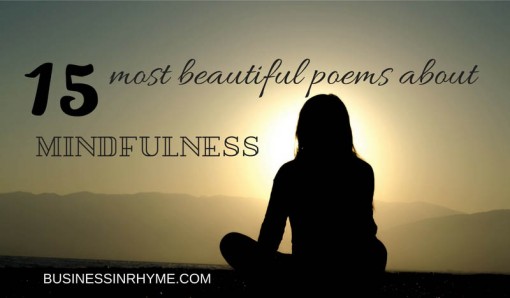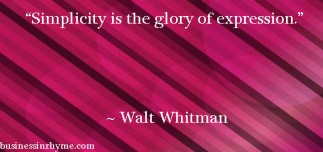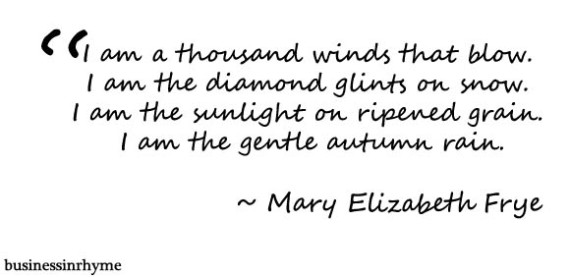
We are all aware that present moment is the place where our power lies. Not in the past or future, but in the now where we can make the most of our lives. Yet, being mindful is not that easy: we often catch ourselves dwelling on the past or worrying about distant events, thus allowing sometimes beautiful tiny moments escape our attention. In this post I share my own practice on using poetry for meditative purposes that I found to be helpful. Today I list here my 15 top poems about mindfulness, purpose in life and happiness. I hope you’ll enjoy them as much as I do.
The Journey by Mary Oliver
One day you finally knew
what you had to do, and began,
though the voices around you
kept shouting
their bad advice-
though the whole house
began to tremble
and you felt the old tug
at your ankles.
“Mend my life!”
each voice cried.
But you didn’t stop.
You knew what you had to do,
though the wind pried
with its stiff fingers
at the very foundations,
though their melancholy
was terrible.
It was already late
enough, and a wild night,
and the road full of fallen branches and stones.
But little by little,
as you left their voices behind,
the stars began to burn through the sheets of clouds,
and there was a new voice
which you slowly
recognized as your own,
that kept you company
as you strode deeper and deeper
into the world,
determined to do
the only thing you could do-
determined to save
the only life you could save.
What Do We Know by Mary Oliver
The sky cleared
I was standing
under a tree.
and there were stars in the sky
that were also themselves
at the moment
at which moment
my right hand
was holding my left hand
which was holding the tree
which was filled with stars
and the soft rain —
imagine! Imagine!
the long and wondrous journeys
still to be ours.
The Peace of Wild Things by Wendell Berry
When despair for the world grows in me
and I wake in the night at the least sound
in fear of what my life and my children’s lives may be
I go and lie down where the wood drake
rests in his beauty on the water, and the great heron feeds.
I come into the peace of wild things
who do not tax their lives with forethought
of grief. I come into the presence of still water.
And I feel above me the day-blind stars
waiting with their light. For the time
I rest in the grace of the world, and am free.
What We Need Is Here by Wendell Berry
Geese appear high over us,
pass, and the sky closes. Abandon,
as in love or sleep, holds
them to their way, clear
in the ancient faith: what we need
is here. And we pray, not
for new earth or heaven, but to be
quiet in heart, and in eye,
clear. What we need is here.
You Reading This, Be Ready by William Stafford
Starting here, what do you want to remember?
How sunlight creeps along a shining floor?
What scent of old wood hovers, what softened
sound from outside fills the air?
Will you ever bring a better gift for the world
than the breathing respect that you carry
wherever you go right now? Are you waiting
for time to show you some better thoughts?
When you turn around, starting here, lift this
new glimpse that you found; carry into evening
all that you want from this day. This interval you spent
reading or hearing this, keep it for life–
What can anyone give you greater than now,
starting here, right in this room, when you turn around?
Enough by David Whyte
Enough. These few words are enough.
If not these words, this breath.
If not this breath, this sitting here.
This opening to the life
we have refused
again and again
until now.
Until now
Stand Still by David Wagoner
The trees before you and the bushes beside you are not lost.
Wherever you are is a place called Here,
And you must treat it as a powerful stranger,
Must ask permission to know it and be known.
The forest breathes. Listen. It answers,
I have made this place around you,
If you leave it you may come back again saying Here.
No two trees are the same to Raven.
No two branches the same to Wren.
If what a tree or a bush does is lost on you,
You are surely lost. Stand still. The forest knows
Where you are. You must let it find you.
Happiness by Hermann Hesse
If luck you chase, you have not grown
enough for happiness to stay,
not even if you get your way.
If, what you lost, you still bemoan,
and grasp at tasks, and dash and dart,
you have not known true peace of heart.
But if no wishes are your own,
and you don’t try to win the game,
and Lady Luck is just a name,
then tides of life won’t reach your breast
and all your strife
and all your soul will rest.
Rumi
Be empty of worrying
Think of who created thought
Why do you stay in prison
When the door is so wide open
Move outside the tangle of fear thinking
Live in silence
Flow down and down
Into always widening
Rings of being
Hafiz
Now is the time
Now is the time to know
That all that you do is sacred.
Now, why not consider
A lasting truce with yourself and God?
Now is the time to understand
That all your ideas of right and wrong
Were just a child’s training wheels
To be laid aside
When you can finally live
with veracity and love.
Now is the time for the world to know
That every thought and action is sacred.
That this is the time
For you to compute the impossibility
That there is anything
But Grace.
Now is the season to know
That everything you do
Is Sacred
Franz Kafka
You do not need to leave your room. Remain sitting at your table and listen.
Do not even listen, simply wait. Do not even wait, be quite still and solitary.
The world will freely offer itself to you to be unmasked, it has no choice,
it will roll in ecstasy at your feet.
T.S. Eliot
I said to my soul, be still, and wait without hope for hope
would be hope for the wrong thing; wait without love
For love would be love of the wrong thing; there is yet faith
But the faith and the love and the hope are all in the waiting.
Wait without thought, for you are not ready for thought:
So the darkness shall be the light, and the stillness the dancing.
Osho
There is a music which has no sound,
the soul is restless for such silent music.
There is a love in which the body is not,
the soul longs for such unembodied love.
There is a truth which has no form,
the soul longs for this formless truth.
The Way It Is by William Stafford
There’s a thread you follow. It goes among
things that change. But it doesn’t change.
People wonder about what you are pursuing.
You have to explain about the thread.
But it is hard for others to see.
While you hold it you can’t get lost.
Tragedies happen; people get hurt
or die; and you suffer and get old.
Nothing you do can stop time’s unfolding.
You don’t ever let go of the thread.
One Sand Grain Among the Others in the Winter Wind by Jane Hirshfield
I wake with my hand held over the place of grief in my body.
“Depend on nothing,” the voice advises, but even that is useless.
My ears are useless, my familiar and intimate tongue.
My protecting hand is useless, that wants to hold the single leaf to the tree
and say, Not this one, this one will be saved.
If you liked this post, please share! And if you are interested in getting more inspiration for your creativity, sign up for our free monthly newsletter.









